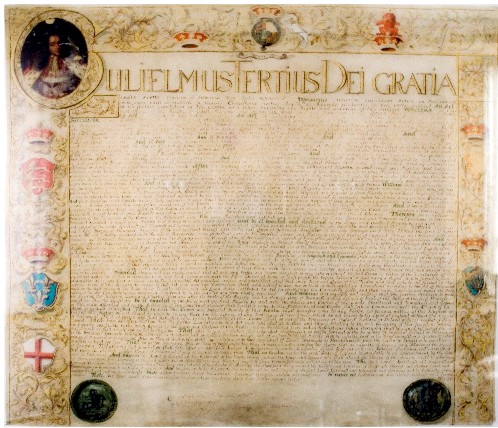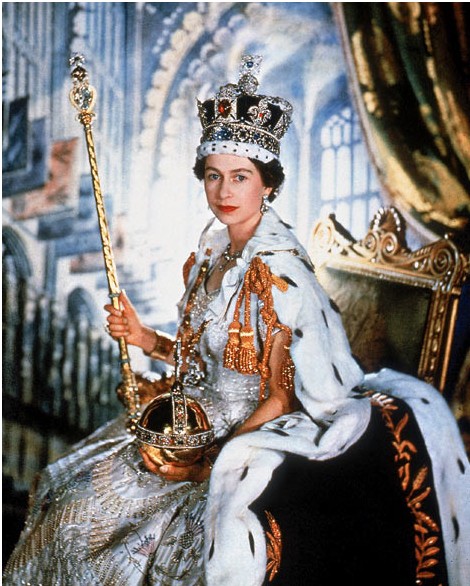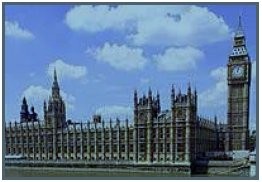|
Plans to abolish the Act of Settlement
The Acts of Settlement and Union are key constituent parts of the UK Constitution. It would be impossible to upset these pieces of legislation without destabilising the whole relationship between God, Sovereign, government, church and people. But the pressures are on and increasing.
Act of Settlement
 UPDATE 30/10/2011 UPDATE 30/10/2011
A gathering in Perth, Australia by the Queen and the Commonwealth Heads of Government has agreed to ammend the Act of Settlement to permit the first-born of the UK monarch, irrespective of gender, to accede to the throne.
A change will also be made to remove the requirement that the monarch be of the Protestant faith.
UPDATE 12/07/2010
David Cameron has dropped plans to repeal the 1701 Act of Settlement which forbids Catholics or anyone married to a Catholic from becoming monarch. Negotiations to reform the Act began last year when Gordon Brown entered into talks with Buckingham Palace and the leaders of 15 Commonwealth countries whose approvals any amendment would require. But Nick Clegg signalled this week that the talks had ended and that the coalition had no intention to push the reform ahead.
UPDATE 19/01/2010
RULES governing royal marriages and the succession to the throne of the UK breach the European Convention on Human Rights, an influential parliamentary committee said yesterday (18/01/10).
The Joint Committee on Human Rights said that laws barring the Royal Family from marrying Roman Catholics were contrary to the convention, while the rule that makes heirs take procedence over older sisters in the succession was 'arguably' also a breach.
It should be obvious from this that the British Constitution, law, government and Sovereign are being trumped by the EU and the laws on Human Rights. See original article below and related articles 'Church or State: who's boss?'
and The EU: a history of our future.
Original Article (published 11/12/2008)
Ostensibly it's about 'equality' and removing a restriction on who can (and in this case, cannot) sit on the British throne. However the Act is a huge pillar in the (largely-unwritten) UK constitution and to make substantial change to it could fundamentally affect the political and religious fabric of the nation(s) and further destabalise the basis on which contemporary society and government are based.
The Act of 1701 was written in a post-Reformation Britain and, in stipulating that only a Protestant could become sovereign, effectively paved the way for the subsequent Acts of Union in 1706 and 1707. The latter effectively ratified the terms of the Treaty of Union which changed Scotland's status from that of a sovereign nation and created, through the union with England, the United Kingdom as we now know it. Without the guarantee regarding a continuing Protestant line of succession, the Scots would never have agreed to the union.
It's all about headship
But the underlying (and main) point is about 'headship'. In the Roman Catholic Church, the Pope is the undisputed head, and all Roman Catholics throughout the world - irrespective of gender, rank or status - sit under his authority. (It is not without signficance that on any occasion in which the Queen meets with the Pope she is obliged to wear black whilst the Pontiff is adorned completely in white. The symbolism is powerful and should not be underestimated.)
However, the fundamental premise of the Protestant church worldwide is the Jesus Christ is head of the church and that anyone claiming that title is effectively taking on the the role and characteristics of the alternative (anti) Christ spoken of in the letter of John and the Revelation given on Patmos. The Westminster Confession of Faith explicitly states this view (Note 1).
The implicit understandings, written and unwritten agreements and various traditions which define the relationship between monarch, people, parliament, church and God are subtle but highly significant.
 The monarch governs under God (a relationship enshrined in the Coronation Oaths) through her Prime Minister and Parliament which in turn is elected by the people and overseen by the House of Lords - in which Anglican bishops and archbishops sit as 'Lords Spiritul' amongst the 'Lords Temporal' (Note 2). The monarch governs under God (a relationship enshrined in the Coronation Oaths) through her Prime Minister and Parliament which in turn is elected by the people and overseen by the House of Lords - in which Anglican bishops and archbishops sit as 'Lords Spiritul' amongst the 'Lords Temporal' (Note 2).
But supremely it is God who reigns over the affairs of men, and a Scottish monarch once needed reminder of this. (Note 3).
The politics of it all
By allowing any future monarch to be someone other than a Protestant Christian we would effectively be attempting to 'dethrone God' as the overall sovereign in our land. This prospect is of course very appealing to Roman Catholics (who have felt displaced since the Reformation), secular humanists who want no truck with a sovereign God, and also every other person of faith and non-faith who would aspire to have a representative from their constituency sit on the throne. Such a development would also fit in with Prince Charles declared and recently reaffirmed view that he wishes to become 'Defender of Faiths' (plural) in contrast to the current monarch's specific responsibilities in both the Church of England and the Church of Scotland.
 A repeal of the Act of Settlement would also delight the SNP as the party could then better attract the (Scottish) Catholic vote whilst simultaneously and signficantly undermining the constitutional and legal ties between Scotland and the rest of the UK. A repeal of the Act of Settlement would also delight the SNP as the party could then better attract the (Scottish) Catholic vote whilst simultaneously and signficantly undermining the constitutional and legal ties between Scotland and the rest of the UK.
In terms of the House of Lords, the 'Lords Spiritual' could (and no doubt would) be drawn from any and every faith grouping. Whilst this is apparently beneficial and more equitable, it is worth remembering that the laws which govern our daily lives are based firmly on Christian precepts rather than (for instance) Sharia law.
Needless to say the Conservative Party would generally oppose any action that might tend to undermine the Union.
However if as a nation we wish to cast the God of Abraham, Isaac and Jacob adrift, then prospect of repealing the Act of Settlement offers a huge opportunity to those who might wish to do so.
And of course there is always the fact to consider that Queen Elizabeth II is a citizen of the EU, and does "scrupulously observe the requirements of EU law."
At this moment at least we can cry: "Heaven help us". In tomorrow's nation we might not be able to aim a plea in that particular direction.
Note 1: The Westminster Confession of Faith is the 'subordinate standard' of presbyterian churches worldwide, and supremely in Scotland. The clause which declares the Pope to be the Anti-Christ is underpinned by a post-millennial eschatalogical view which discounts an end-of-days appearance of a definitive and supremely diabolical figure, but rather sees the Roman pontiff as a manifestation of the spirit of AntiChrist which John tells us is already in the world.
Note 2: Whilst the House of Commons is in session the Mace symbolises the monarch's prescence, but the bearer of the Mace (Black Rod) from the House of Lords has no guaranteed right of entry to the House of Commons. [This subtle relationship is played out as a piece of political theatre at the State Opening of Parliament and the reading of the Throne Speech. The queen summons the House of Commons via the House of Lords and Black Rod, however the latter has to repeatedly knock (three times) to be allowed admission to the Commons, even though the Commons has no lawful authority to bar him.]
Prior to the Act of Settlement in 1707, there was a Gentleman Usher of the White Rod who had a similar role in the Scottish Parliament. This office no longer exists.
Note 3: Scots protestant Andrew Melville famously and directly confronted King James VI of Scotland (later also King James 1 of England): "There are two kings and two kingdoms in Scotland: there is King James, the head of the Commonwealth; and there is Christ Jesus, the King of the Church, whose subject James the Sixth is, and of whose kingdom he is not a king, not a lord, not a head, but a member."
|
Christians Together, 12/07/2010
|
|
|
|